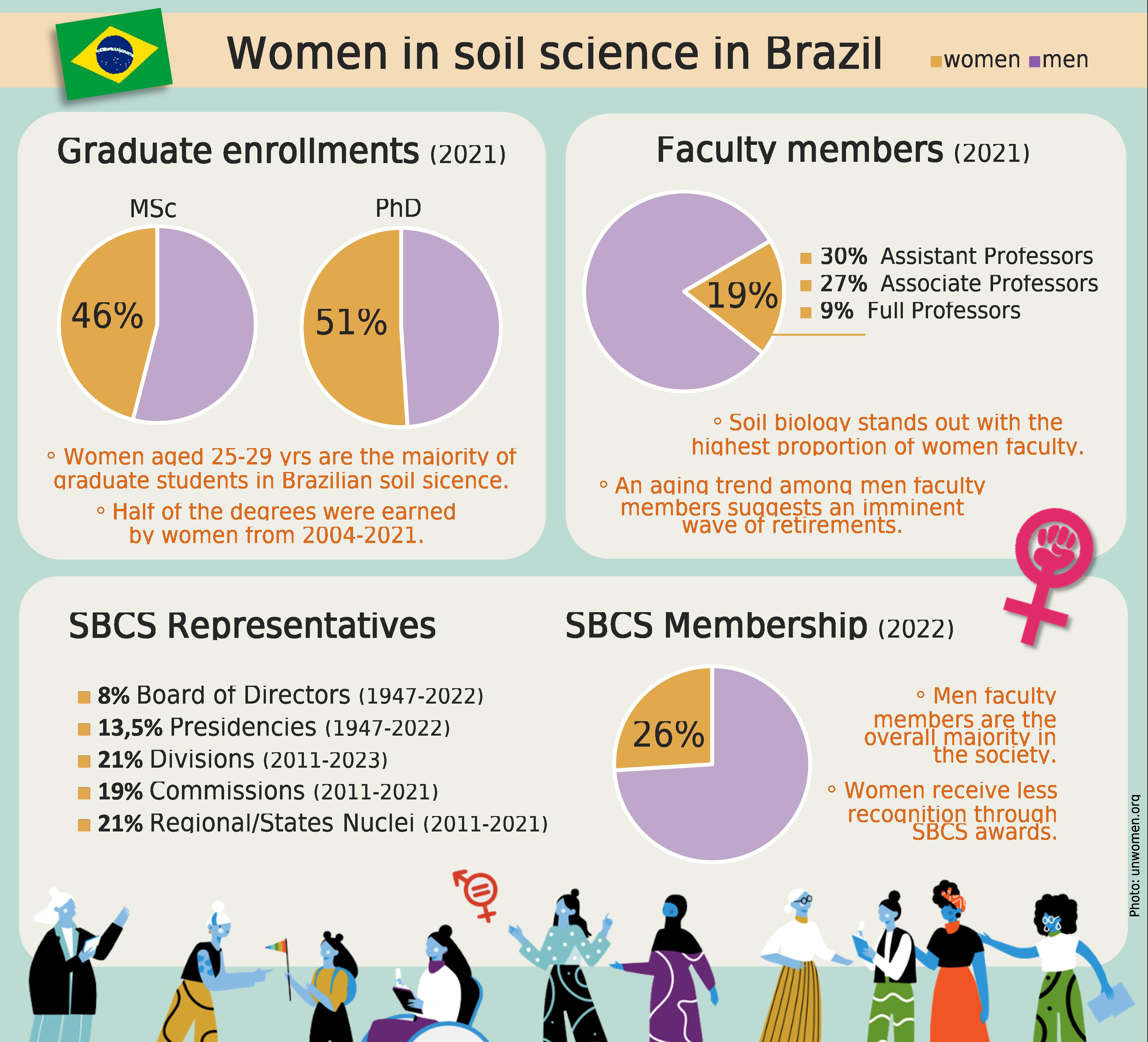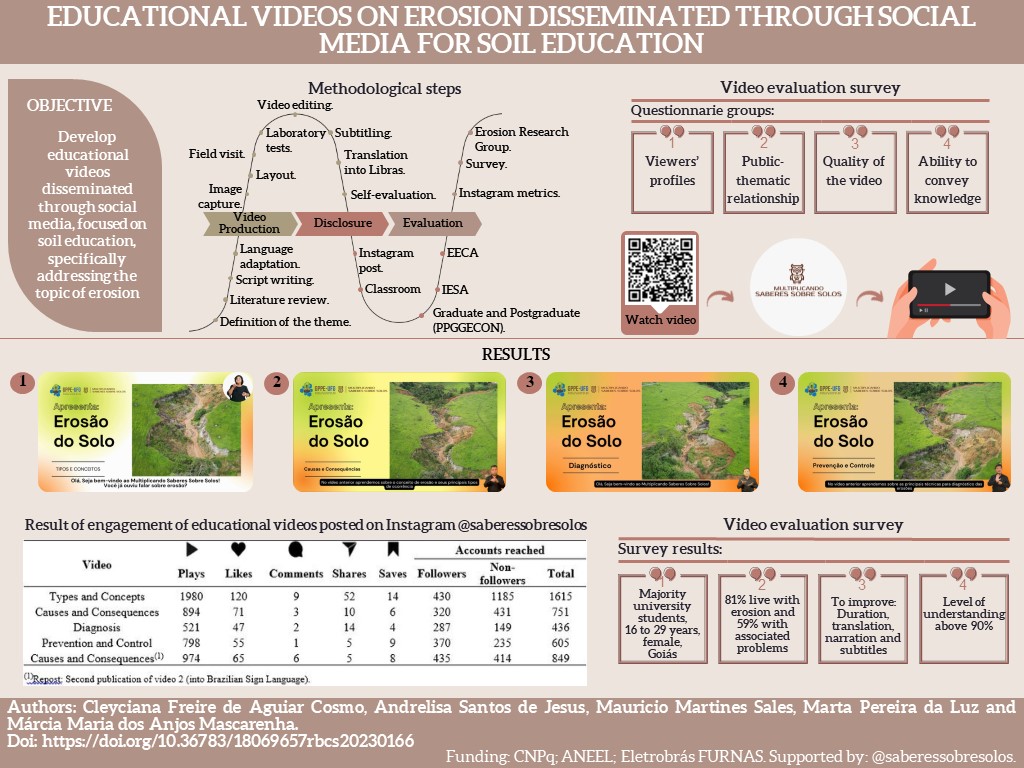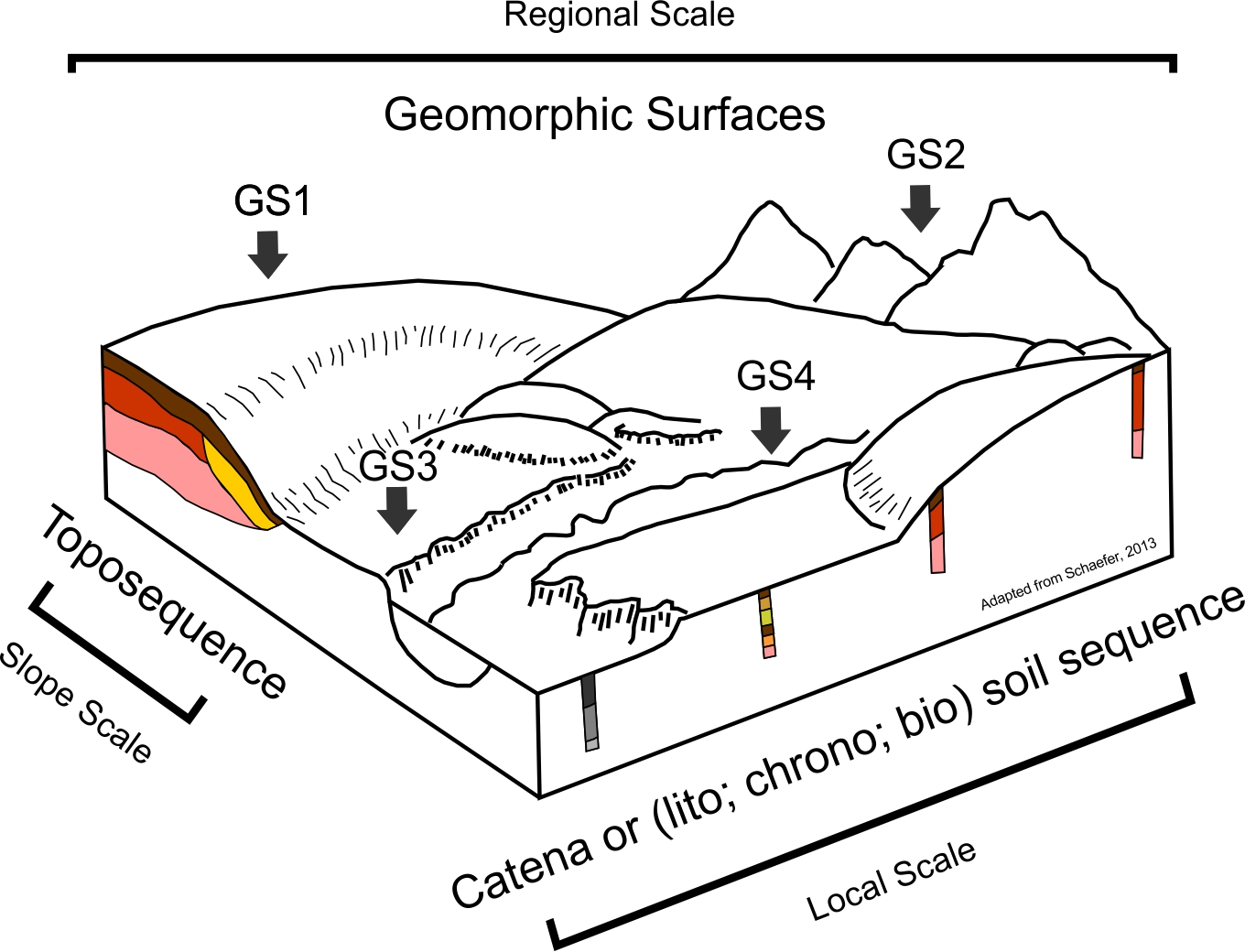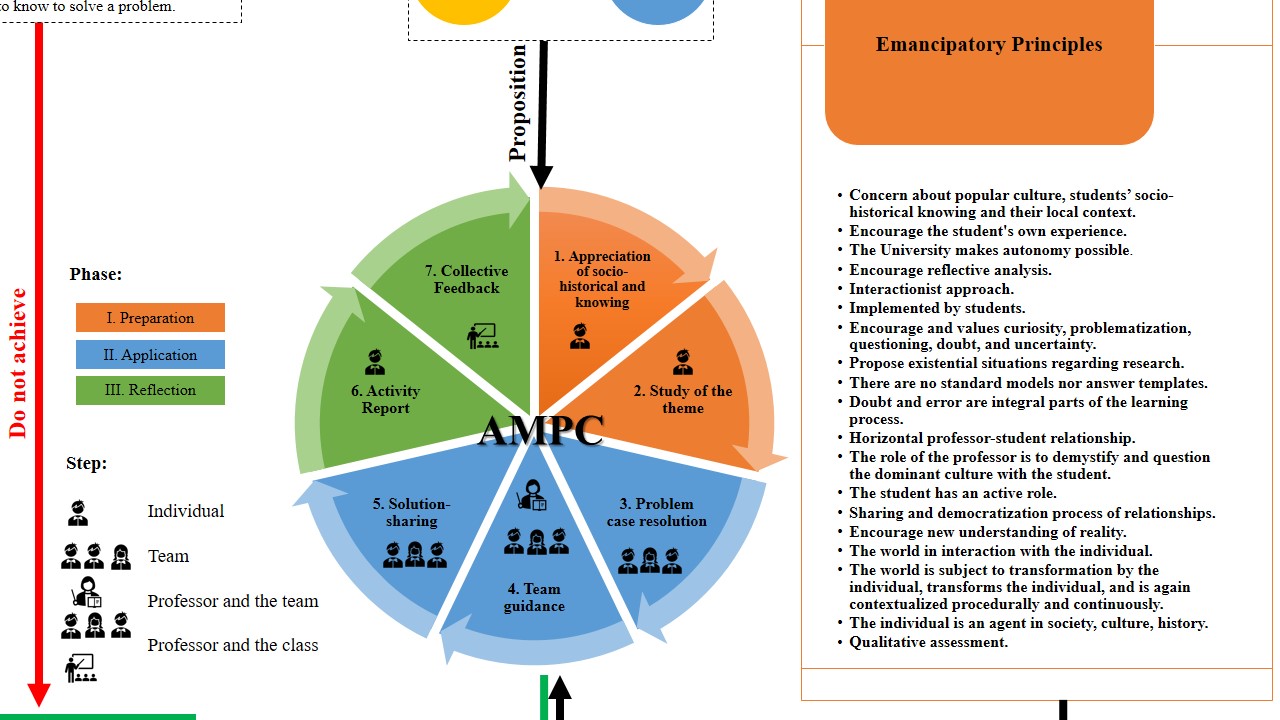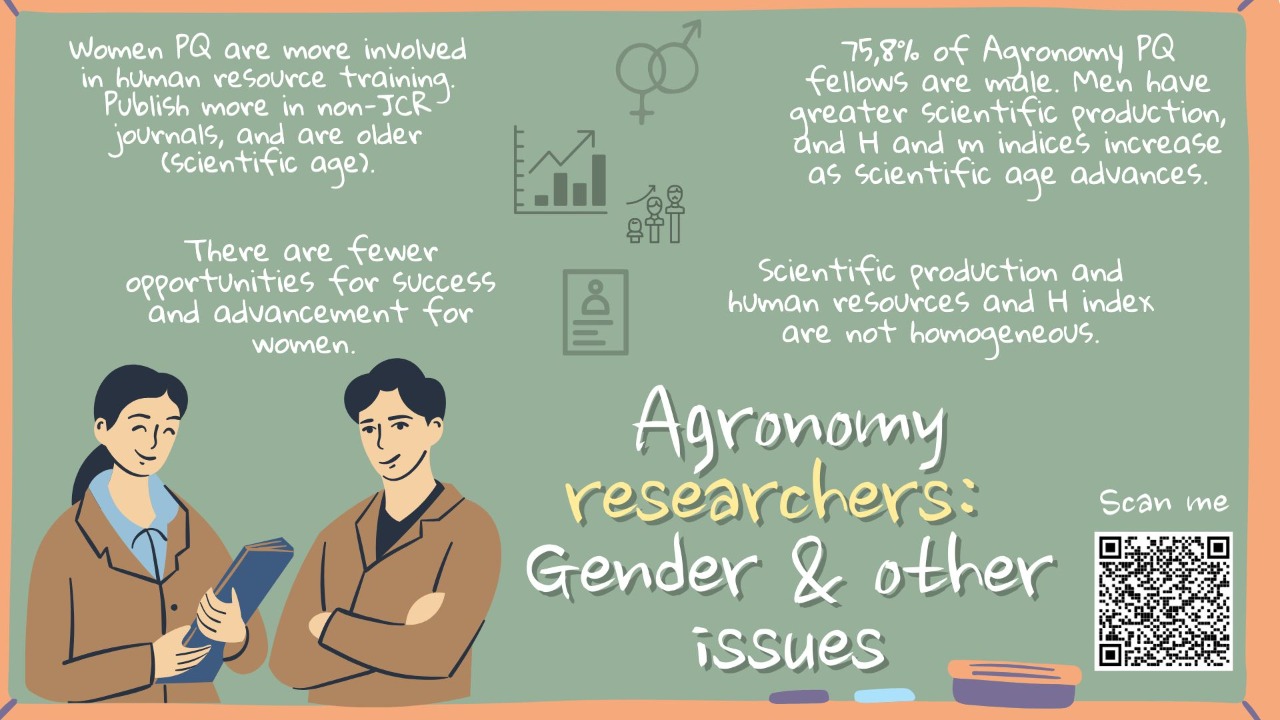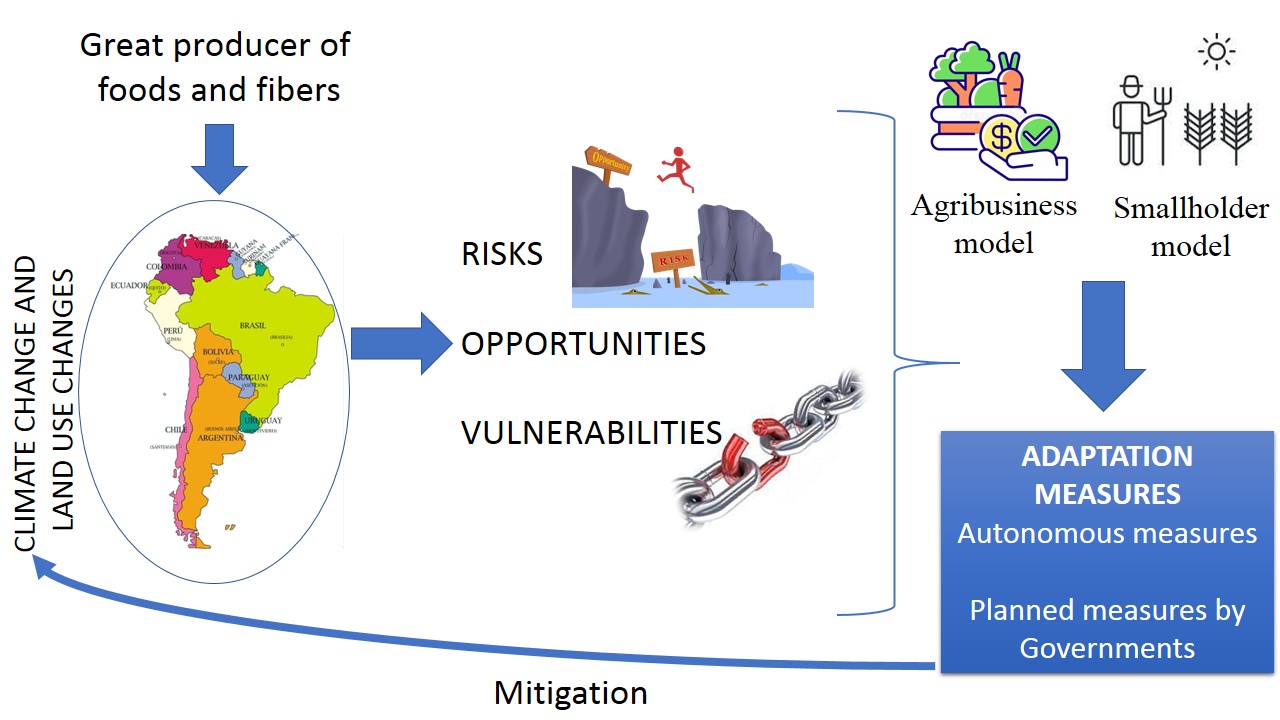Emotional connection empowers farmer-driven soil conservation
06/Nov/2025
ABSTRACT A unified theoretical framework that comprehensively explains soil conservation behavior remains elusive. This underscores the significance and novelty of research exploring the psychological factors influencing farmers’ decisions. The concept of “connection to soil” captures the emotional bond that farmers develop with the land. We hypothesized that connection to soil acts as a mediator, strengthening the relationship between farmers’ pro-environmental propensity (broad commitment to environmental protection) and their adoption of soil conservation practices. This study involved 150 farmers, equally distributed […]
Gender equity in soil science in Brazil: Still at the beginning of a long journey
25/Nov/2024
ABSTRACT Current studies have highlighted a significant gender disparity in the field of soil science. However, the scarcity of research and data on this issue can hinder the urgent need to address it and effect meaningful changes. This was the first demographic survey of Brazilian soil science, focusing on gender composition over time at different academic and professional levels, as well as peer recognition. We examined the metrics of students and faculty from all Brazilian soil science graduate programs (2004-2021), […]
Educational videos on erosion disseminated through social media for soil education
19/Jun/2024
ABSTRACT Soil education plays an important role in preventing soil degradation processes by raising awareness among the population about the importance of this non-renewable resource. Using new educational technologies in teaching, such as educational videos and social media, can speed up communication and information. This article aimed to develop educational videos on the topic of erosion, posted on social networks, as a way of popularizing science. Four videos of a maximum of 7 minutes were produced, which were shown in […]
Toposequence: What are we talking about?
10/Jun/2024
ABSTRACT The term toposequence, proposed to designate a lateral succession of soils on a slope due to the influence of topography, began to be used differently over time, distancing itself from its original concept. Here, we discuss how this concept has been used since its inception. We carried out bibliometric analyses of publications in the database available on the Web of Science since 1900. Three main approaches and related concepts, explicit or not, one at a regional scale and two […]
Educational procedures guided by emancipatory principles for education on soils in higher education: A proposal
04/Sep/2023
ABSTRACT The traditional paradigm of education, although outdated, still supports Soil Educational procedures in several Brazilian universities. However, the strategic documents of these institutions (Institutional Development Plan-IDP, Institutional Political Project-IPP and Pedagogical Projects of Courses-PPC’s) support a critical vision of education, which converges with the emancipatory paradigm and with the purpose of Soil Education (SE), which is the formation and transformation of subjects for conscious actions in reality. To overcome this problem, we propose educational procedures guided by emancipatory principles […]
Identifying appropriate reference ecosystems based on soil indicators to evaluate postmining reclamation: A multivariate framework
23/Aug/2023
ABSTRACT Large-scale mining operations, such as those associated with iron extraction, disturb soils and vegetation and create the need for effective rehabilitation practices. The Iron Quadrangle region of southeastern Brazil is one of the world’s biodiversity hotspots; however, iron mining activities threaten many natural and seminatural ecosystem types in which many rare/protected species occur. The Iron Quadrangle has four main ecosystem types: Atlantic Forest (AF), ferruginous rupestrian grassland with dense vegetation (FRG-D); ferruginous rupestrian grassland with sparse vegetation (FRG-S); and […]
Alternative Methodology of Problem Cases – AMPC for soil education guided by emancipatory principles
28/Oct/2022
ABSTRACT Soil Education aims to give individuals a transforming formative process for conscious actions related to the soil in their life experiences in and with the world. As such, the educational methodologies addressing soil-related contents should be in dialogue with the purpose of this educational process. On the perspective of education for social transformation, it is recommended that professors of Higher Education avoid from pedagogical actions with traditional approaches, and start using other strategies and methodologies centered on students and […]
Agronomy researchers and research scholars in Brazil: Gender, scientific age, scientific production and impact, and training of human resources
18/Jul/2022
ABSTRACT Transparency of evaluation criteria and monitoring recommendations for research grants require careful judgment and frequent reassessment of guiding parameters. The aim of this study is to inform the scientific community and funding agencies about the applicants profile for research productivity grants (PQ) in the field of Agronomy of the National Council for Scientific and Technological Development (CNPq), and to contribute to the analysis of grant distribution using the grant applicants of the 2018 call as a study sample. The […]
Soil quality literature in Brazil: A systematic review
06/Apr/2022
ABSTRACT Brazilian soil scientists have increased the use of the term “soil quality” in their scientific publications in the last decade. However, it remains unclear if those publications only mention “soil quality” in a broad context, or the studies are focused on soil quality assessments, integrating soil chemical, physical and biological indicators. The objective of this systematic review was to carry out a critical analysis of the conception in using the term “soil quality” in recent publications derived from studies […]
Climate change adaptation and the agricultural sector in South American countries: Risk, vulnerabilities and opportunities
05/Nov/2021
ABSTRACT South America covers a vast area with diverse climates and landscapes, with high participation in the global production of food and fibers. It is crucial to understand the risks, vulnerabilities, and opportunities that climate change brings to this region. We analyzed the increasing tension between agribusiness models and smallholder models, the risks, opportunities, and main adaptation measures that can be adopted in the agricultural sector of the South American countries facing climate change. This study is a review of […]

